A healthy and balanced diet, which is rich in key nutrients is beneficial not only to the overall health, thus helping to prevent the risk of various disorders, but also to a wrinkle-free, firm, elastic and glowing skin. Essential vitamins and minerals are crucial for a healthy, young-looking and radiant skin naturally. Almost all skin care products available on the market contain essential vitamins, because they are scientifically and clinically proven to support the natural beauty and health of the epidermis in the long run. The assimilation of these key vitamins can be achieved either by food intake or by vitamin supplementation. It is important to learn how vitamin can give you vibrant skin and below are the main benefits of essential vitamins for your skin.
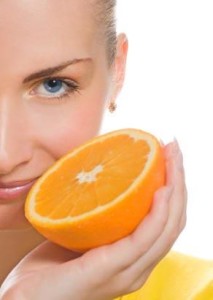
1. Vitamin A ( Retinol and beta-carotene) is Essential For Skin and Cellular Health
This fat-soluble vitamin occurs naturally in foods either as retinol or as carotenes, such as beta-carotene which functions as pro-vitamin A. This is due to the fact that beta-carotene is converted into retinol within the small intestine. Vitamin A plays an important role in dermatology, because it helps the skin to maintain its health by supporting the active transformation of immature skin cells ( medically as keratinocytes) into full-fledged epidermal cells. A typical symptom of vitamin A deficiency is a dry and scaly skin. Both oral intake and topical application of vitamin A are highly beneficial to the skin, because retinol increases the thickness of the dermis, the deepest layer of the skin where wrinkles form.
Vitamin A is incorporated in various prescription skin care creams (such as for acne, psoriasis and rosacea) and non-prescription skin care creams and serum (such as anti-aging skin care products). These creams typically contain first-generation retinoids, which are derivatives of retinol. Vitamin A also boosts the production of collagen and elastin within the skin, which prevents and improves fine lines and wrinkles. In addition, it helps to restructure and reconstruct the tissues and it accelerates the healing of wounds and damaged skin. Food sources of vitamin A include green leafy vegetables (spinach, collard greens, dandelion greens, broccoli leaves), sweet potatoes, kale, carrots, tomatoes, papaya, apricots, kale, eggs, cantaloupe melons, peas and pumpkin.
2. Vitamin B Complex Is Important In Skin Cell Metabolism
These water-soluble vitamins are essential for the regeneration of the skin cells and for a young-looking, glowing skin from within. The most important vitamins of the B complex are vitamin B2, also known as riboflavin, vitamin B5, also known as pantothenic acid, vitamin B3 (or niacin) and vitamin B7 (or biotin). A deficiency of vitamin B2 leads to the occurrence of seborrheic dermatitis, which consists of flaky, red and itchy skin. Vitamin B3 deficiency also causes dermatitis, eczema or skin rash, while vitamin B5 deficiency triggers the risk of acne. Niacin is highly important if you have a sensitive skin, prone to redness and irritation or a dry skin, which needs extra moisture. Vitamin B3 increases the production of ceramides, which are essential to keep moisture in and to prevent the occurrence of brown spots. Lack of vitamin B7 leads to a red, irritated and scaly skin often accompanied by eczema. Natural sources of vitamin B complex include whole grains ( oatmeal, maize, barley, wheat bran, rye, buckwheat, brown rice), green leafy vegetables, peanuts, cheese, soy milk and eggs.
3. Vitamin C Is a Potent Antioxidant For a Healthy And Naturally Glowing Skin
Free radical damage is linked to the occurrence of wrinkles and fine lines and it leads to a dull facial skin. In addition to functioning as a powerful natural antioxidant, highly effective against the oxidative stress that leads to signs of aging, vitamin C also increases the production of collagen within the deep layers of your skin. Collagen is responsible for making your skin suppler and firmer and for reducing age spots. A smooth, young-looking and naturally radiant skin requires daily intake of vitamin C, either from natural sources or from supplements Food sources which are rich in this water-soluble vitamin include almost all fruits ( such as strawberries, lemons, rose hips, papaya, acerola, apples, raspberries, kiwi) and vegetables such as cauliflower, red peppers, garlic, spinach, lettuce, tomatoes, parsley and broccoli.
4. Vitamin E Is An Effective Antioxidant and Prevents Premature Skin Aging
This fat-soluble vitamin is one of the essential micronutrients for a young, wrinkle-free and healthy skin. Vitamin E is incorporated in all anti-aging skin care products, because it protects the skin cell membranes from oxidative stress and it helps to repair the damaged tissues. Vitamin E is clinically proven to improve the appearance of deep wrinkles, such as the ones occurring at the corner of the mouth and around the eyes, stretch marks and age spots. It can either be applied topically or ingested from various natural sources. Olive oil is extremely high in vitamin E and it is reported to be the elixir of youth used by Italian celebrities such as Sophia Loren who does not look her age at all. Other food sources of vitamin E include wheat germ oil, peanuts, almonds, hazelnuts, asparagus, avocado, sweet potatoes, leafy vegetables and sunflower oil.
Guest Author Bio:
Jennie Richard is a blogger for Dermatend-Skin Tag. She likes to blog on various health topics that are related to Skin care and Beauty.
Do you include these Vitamins in your diet and skin care ?
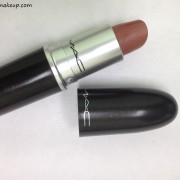
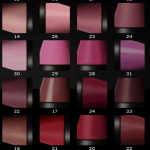
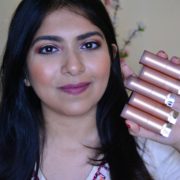
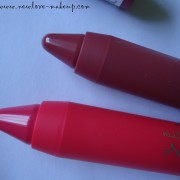
Recent Comments